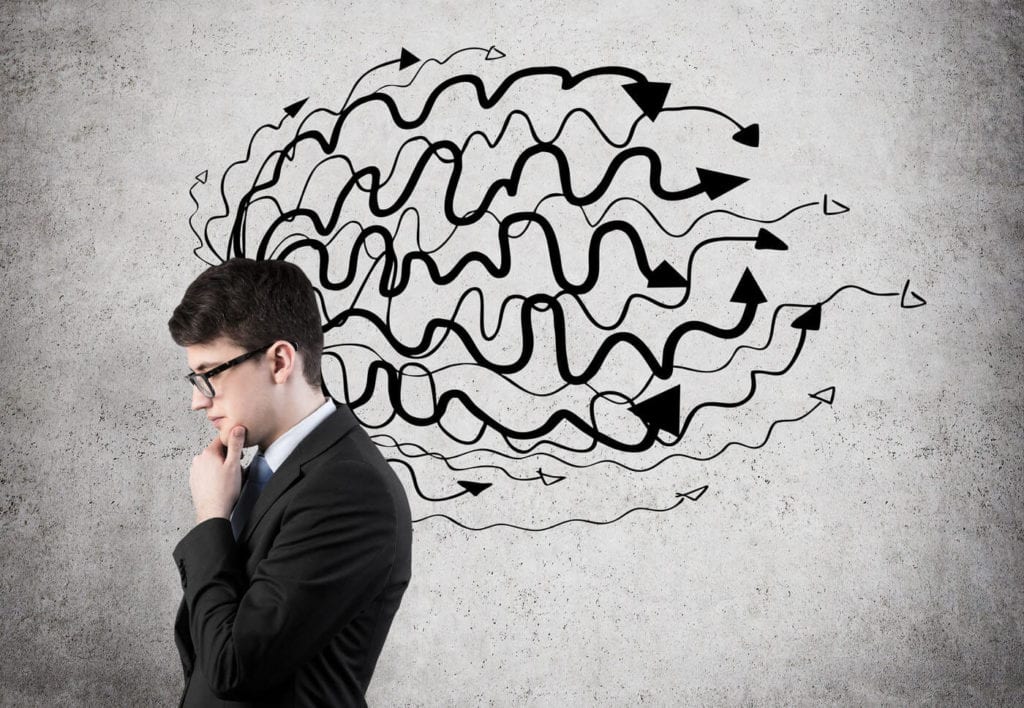Have you ever thought if you had to make one more decision, your head would explode? Well, you’re not alone. In fact, there’s a name for that feeling. It’s called decision fatigue. Decision fatigue is a physiological phenomenon that causes our decisions to become less thoughtful or sound as we become more mentally exhausted.
How Does Decision Fatigue Affect Productivity and Leadership?

Decision fatigue affects us mentally in much the same way that physical exhaustion affects us physically. Imagine running a marathon and then, at the end, finding out you had to run another ten miles to get your medal. What do you think your response would be? You may choose to run the extra ten miles but at a pace far slower than normal. Or perhaps you would just skip it, rationalizing the medal was not that important anyway. In either case, your total performance would be much worse than normal.
As decision fatigue begins to set in, our productivity begins to slow down. The more fatigued our brain becomes, the less productive we become. We may even begin to make bad choices or postpone making any choice at all. These mistakes can be costly to fix and make our peers question our ability to lead a team. In some cases, they may even endanger the health or safety of our employees.
How Can We Avoid or Overcome Decision Fatigue?

Perhaps the easiest way to avoid decision fatigue is to build safeguards into our daily lives that require us to make fewer decisions. Automating your home by using a smart thermostat can do just that.
Unlike ordinary programmable thermostats, a smart thermostat can learn your routine and make adjustments that will make your home more comfortable and save you money on your energy bills. This frees up valuable brain power for more important decisions. If you are interested in smart thermostats feel free to visit AirConditioningTallahassee.com
Setting up a daily agenda can help fight decision fatigue as far too many people spend the first hour or two of their day deciding what they will tackle. An agenda will help eliminate this as everyone knows which tasks might be harder to take on at a specific time of day. Automation can be a huge help when possible as taking out tedious parts of a job cannot be understated. Being able to send out an automated email to a client once a project is complete is far easier than drafting a new email for each client project.
Follow up emails are also something that can be easily automated for those doing things like client management or sales. For most people that do not utilize automation, it is simply due to not realizing there is a piece of technology that can make their jobs easier. Not all people have management at their places of work that tries to empower the employee by helping identify tools that can help.
Because our brains are less fatigued after a good night’s rest, it makes sense that decision fatigue worsens as the day progresses. For that reason, it is smart to schedule the most important or difficult decisions early in the day. This practice will help prevent decision fatigue from interfering with our actions and result in a more thoughtful and productive outcome. There are tasks that most people can handle during the day that are simple like that of doing data entry.
A person can put their mind at ease by doing something simple to ease their mind. This is not the case for someone that has to do an in-depth report or pitch later in the day. The brain can become overwhelmed especially if a person is tired or the day/week has been overly stressful. The body needs rest much like that mind which is not as apparent until you hit a massive feeling of decision fatigue.
You can also fight decision fatigue by limiting multitasking as much as possible. Each time our brain shifts gears from Problem A to Opportunity B, our decision-making efficiency decreases. Just think about how productive you could be if you could work steadily all day without interruption. Although that’s usually not possible, it is possible to build blocks of time into your schedule where you can concentrate on a single project or task.

Adopting this habit will help eliminate decision fatigue and make you more productive. Reducing multitasking can start with those distractions at work that are prevalent. The distraction for many people come in the form of a panicked client emailing or manager trying to schedule meetings that could have been handled with a simple email.
Make promises to yourself to finish a specific project before looking at emails as a client will give you a call if it is urgent. Remember that everyone thinks their job or account is the most important. It is your job to differentiate what is important for you to complete in a day when compared to the demands of others.
Meditation is important when trying to fend off decision fatigue if you have had a long day. Taking 20 minutes to meditate can help rejuvenate a person or allow them to clear the stress that is impacting their decision-making capabilities.
Everyone has activities that put their mind at ease and for some people it is playing sports or exercising. Being able to not actively think about something will make your decisions far easier to make. A clear mind can also help clear up situations that could have given a tired brain quite a bit of trouble to figure out.
Take the time to practice meditation to see if this can make a huge difference in your life. While everyone might want to nap during the day, meditating for a period of time during a lunch break can make a huge difference.
Although decision fatigue affects us all at one time or another, being proactive by planning and putting safeguards in place can help limit its negative effects. By doing so we can use our brain power to close that record-breaking sales deal rather than deciding what to have for dinner.
 Imagup General Magazine 2025
Imagup General Magazine 2025



